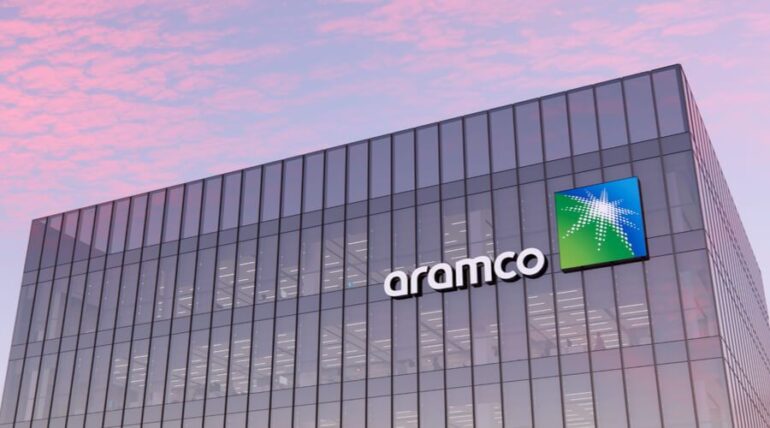TL;DR:
- Biden administration compels Saudi Aramco venture capital firm Prosperity7 to sell its shares in Rain AI, a Silicon Valley AI chip startup supported by Sam Altman.
- Committee on Foreign Investment in the United States (CFIUS) directs Prosperity7 to divest its stake due to national security concerns.
- Growing US scrutiny on Middle Eastern wealth funds and their ties with China.
- China’s increasing engagement with the Middle East, including a $7 billion local-currency swap agreement with Saudi Arabia.
- Sam Altman seeks to raise billions for a new AI chip venture, potentially competing with Nvidia.
- The market for AI chips, despite Nvidia’s dominance, sees the emergence of startups like Rain AI aiming for cost-effective and energy-efficient solutions.
- Concerns about power consumption of data centers housing large AI models.
- Uncertainty regarding Sam Altman’s ongoing involvement with Rain AI and its technology.
Main AI News:
In a recent development with potentially far-reaching implications, the Biden administration has compelled a Saudi Aramco venture capital firm to divest its holdings in a Silicon Valley AI chip startup supported by none other than Sam Altman, co-founder of OpenAI. This forced exit casts a spotlight on Saudi Arabia’s burgeoning investments in US technology and underscores the increased scrutiny Middle Eastern wealth funds are facing from the US government, particularly those perceived to have close ties with China.
Prosperity7, a significant investor in Rain AI’s 2022 funding round that raised $25 million, has reluctantly sold its shares in the startup following a thorough review by the Committee on Foreign Investment in the United States (CFIUS), the primary regulatory body overseeing deals with potential national security implications. Sources familiar with the matter, who requested anonymity due to the sensitive nature of the information, revealed that CFIUS directed the Saudi fund to unwind the transaction within the past year.
The heightened scrutiny over the activities of Middle Eastern wealth funds comes as part of a broader effort to mitigate perceived national security risks associated with entities that maintain close connections to China. CFIUS is currently assessing several multibillion-dollar deals, expressing concerns about their potential impact on national security.
Rain AI, which enjoys financial backing from Sam Altman, specializes in designing AI chips inspired by the human brain’s functioning. Prosperity7 has divested its stake in the company, transferring ownership to Silicon Valley investment firm Grep VC, as reported by data firm PitchBook. Despite numerous inquiries, Altman, Rain AI, Prosperity7, and Grep VC have all refrained from offering comments on this development. In response to queries, CFIUS issued an emailed statement asserting its commitment to safeguarding US national security, although it refrained from commenting on specific transactions under review.
China’s efforts to strengthen its ties with the Middle East have gained momentum amid escalating tensions with the US and Europe. In a significant move, China and Saudi Arabia recently signed a local-currency swap agreement valued at approximately $7 billion. It’s worth noting that Saudi Aramco, the parent company of Prosperity7, has made substantial investments in China’s energy sector, even as Saudi Arabia seeks to attract Chinese tech companies.
The divestiture by Prosperity7, a $1 billion venture capital fund under Aramco Ventures, takes on added significance within the context of the White House’s campaign to counter China’s technological ascendancy, particularly in the realm of semiconductors—a critical component of future innovations, including artificial intelligence.
Meanwhile, Sam Altman is actively working to raise billions of dollars for a new AI chip venture, positioning it as a formidable competitor to Nvidia Corp. Reports suggest that Altman recently embarked on a fundraising mission in the Middle East for a project code-named Tigris, though it remains unclear whether Rain AI is directly connected to this initiative. The state of Rain AI’s technology also remains at an early stage of development.
Although Nvidia currently dominates the market for AI chips, Rain AI and Altman find themselves among a growing cohort of startups across Asia and Europe dedicated to designing more cost-effective and energy-efficient chips. It’s worth noting that the US has imposed restrictions on the sale of high-performance chips to China, constraining China’s aspirations to compete in the burgeoning AI sector.
With the emergence of OpenAI’s ChatGPT, concerns have arisen regarding the power consumption of data centers housing large AI models. Startups like Rain AI, categorized as “in-memory chip” ventures, are pioneering novel approaches to data processing aimed at reducing the need for data transfers and consequently curbing power consumption. The extent of Sam Altman’s continued involvement with Rain AI and his current perspective on its technology remains uncertain.
Conclusion:
The US government’s move to compel Saudi-backed Prosperity7 to exit its investment in Rain AI reflects an increasing emphasis on national security in technology investments. This development underscores the broader trend of heightened scrutiny on Middle Eastern wealth funds, particularly those with perceived connections to China. Simultaneously, China’s expanding presence in the Middle East raises questions about geopolitical dynamics in the region. The emergence of startups focused on energy-efficient AI chips indicates a competitive market, while Sam Altman’s fundraising efforts for a new venture signal potential disruption in the semiconductor sector.

